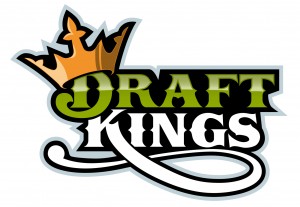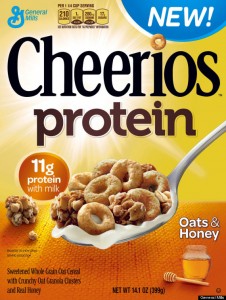 Top Class Action Lawsuits
Top Class Action Lawsuits
The fantasy is over…the game is up. Well, maybe. JP Morgan Chase and a host of others financial companies, including Visa, MasterCard and American Express got hit with a consumer fraud class action lawsuit this week for processing payments for DraftKings and FanDuel. The fantasy sports lawsuit, filed in federal court, also names Capital One Bank and two other payment processors as defendants. The lawsuit claims the banks and credit companies should have known that DraftKings and FanDuel were running illegal internet gambling rings in violation of state and federal laws. “Significantly, the burden is on the payment provider to prohibit restricted transactions or risk civil or criminal punishment,” the complaint states.
raftKings and FanDuel are the two largest players in the daily “fantasy sports industry.” The game allows players to pick a roster of professional athletes from all of the major sports and win cash prizes if their team wins that night’s, or week’s, games, depending on the sport.
Earlier this month, New York Attorney General Eric Schneiderman sent DraftKings and FanDuel cease-and-desist letters The stating daily fantasy sports companies are misleading New York consumers into thinking their services are like traditional fantasy sports and are causing the same kinds of social and economic harms as other forms of illegal gambling.
“Daily fantasy sports is neither victimless nor harmless, and it is clear that DraftKings and FanDuel are the leaders of a massive, multibillion-dollar scheme intended to evade the law and fleece sports fans across the country,” Schneiderman said in a statement.
The case is Guttman et al v. Visa Inc. et al, case number 1:15-cv-09084, in the U.S. District Court for the Southern District of New York.
Meanwhile, back on the employment front…Urban Outfitters Inc. and subsidiaries Anthropologie Inc. and Free People Inc. are facing a wage and hour class action lawsuit filed in California state court, alleging they use a call-in scheduling policy in violation of California labor law. Seen a few of these now…am reminded of that tune…”how long has this been going on?”
Filed by former Urban Outfitters retail sales clerk Mariah Charles, the Urban Outfitters lawsuit asserts the defendants requires some of their employees to call their managers two hours before they are tentatively scheduled for a shift in order to find out whether or not they will work that day. The company policy states that if the employees don’t work, they aren’t paid for making the phone call or for clearing their schedule for the day, according to the complaint.
“Defendants frequently do not allow employees to work a scheduled call-in shift, thereby depriving the employee of the opportunity to earn wages for the time they have made available to defendants,” the lawsuit states. “Regardless of how many days and hours employees are in fact permitted to work, employees are required to mold their lives around the possibility that they will work each and every call-in shift.”
According to the complaint, the call in policy also makes it impossible for employees to navigate eligibility requirements for government benefits like housing assistance, food stamps and child care subsidies, which are typically based on income or hours worked per week.
“Because employees are not permitted to effectively use their time for their own purposes when making the call-in inquiry, under California law, they are entitled to wages,” the lawsuit states.
The lawsuit claims the defendants’ policy violates Section 5 of California’s Industrial Welfare Commission Wage Order 7-2001, which dictates that if an employee is required to show up for work and does, they are entitled to half a day’s pay. Additionally, the company fails to pay minimum wage for the time the workers spend on the phone with their managers checking to see if they’ll work that day.
The complaint alleges failure to pay minimum wage, failure to pay reporting time pay, failure to provide accurate wage statements, failure to keep accurate records, failure to pay earned wages upon separation of employment, unlawful business practices, unfair business practices, and asks for civil penalties under the Private Attorneys General Act.
Charles is represented by Marcus J. Bradley, Kiley L. Grombacher and David C. Leimbach of Marlin & Saltzman LLP. The case is Mariah Charles v. Urban Outfitters Inc. et al., case number BC6-1952, in the Superior Court of California, County of Los Angeles.
Top Settlements
Here’s one for the books. In what is considered a bellwether defective hip implant lawsuit, a jury has just handed down an $11 million verdict against the makers of allegedly defective implants. In this trial, part of a multidistrict litigation (MDL) against Wright, the Atlanta jury found the plaintiff did have a defective hip implant, and that Wright had misrepresented the safety of the device.
According to court documents, the Wright hip verdict includes $1 million in compensatory damages and $10 million in punitive damages. Robyn Christiansen, the plaintiff, is one of about 2,000 people who filed a complaint or entered a tolling agreement after receiving allegedly defective Wright Conserve Hip Implant Systems. She filed her lawsuit in 2013, seven years after receiving her implant.
According to the complaint, Christiansen underwent surgery to receive the implant in 2006, based on information provided by Wright that the metal-on-metal design was better compared with those made a polyethylene lining.
Christiansen began experiencing severe pain in her right hip in 2012, during exercise. She underwent surgery to correct what her doctor thought to be a loose component. However, during the surgery her doctor discovered the surrounding soft tissue had been damaged by metal debris that was causing the hip to fail, according to the complaint.
“A former ski instructor for over 47 years, Ms. Christiansen is now limited in her ability to enjoy the things she has always loved to do, such as water-skiing and hiking,” according to a written statement provided on behalf of the plaintiff’s counsel.
The case is In re: Wright Medical Technology Inc., Conserve Hip Implant Products Liability Litigation, case number 1:12-md-02329, in the U.S. District Court for the Northern District of Georgia.
Ok – that’s it for this week folks –Happy Thanksgiving Weekend!



